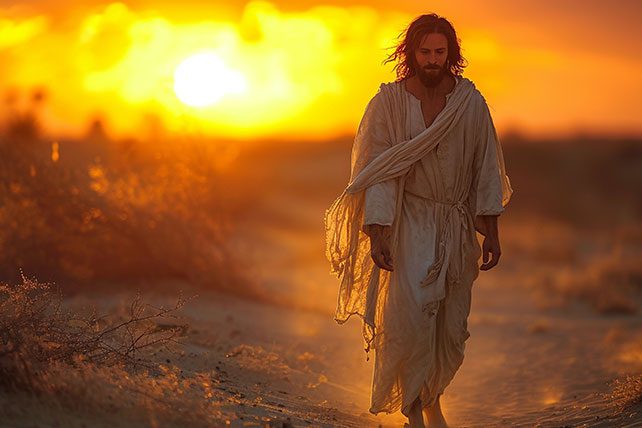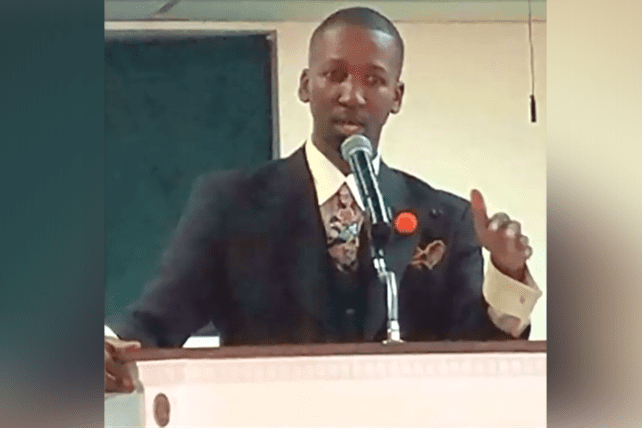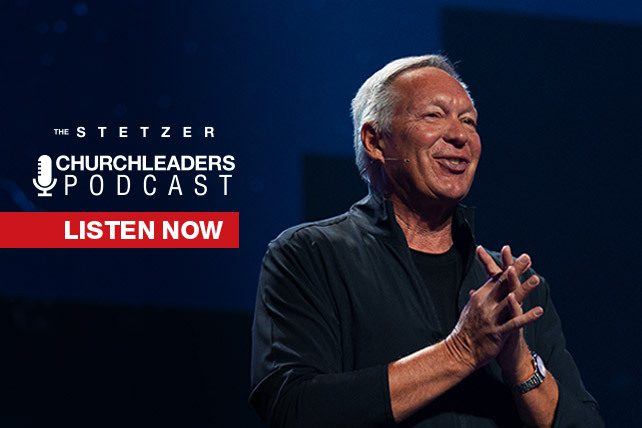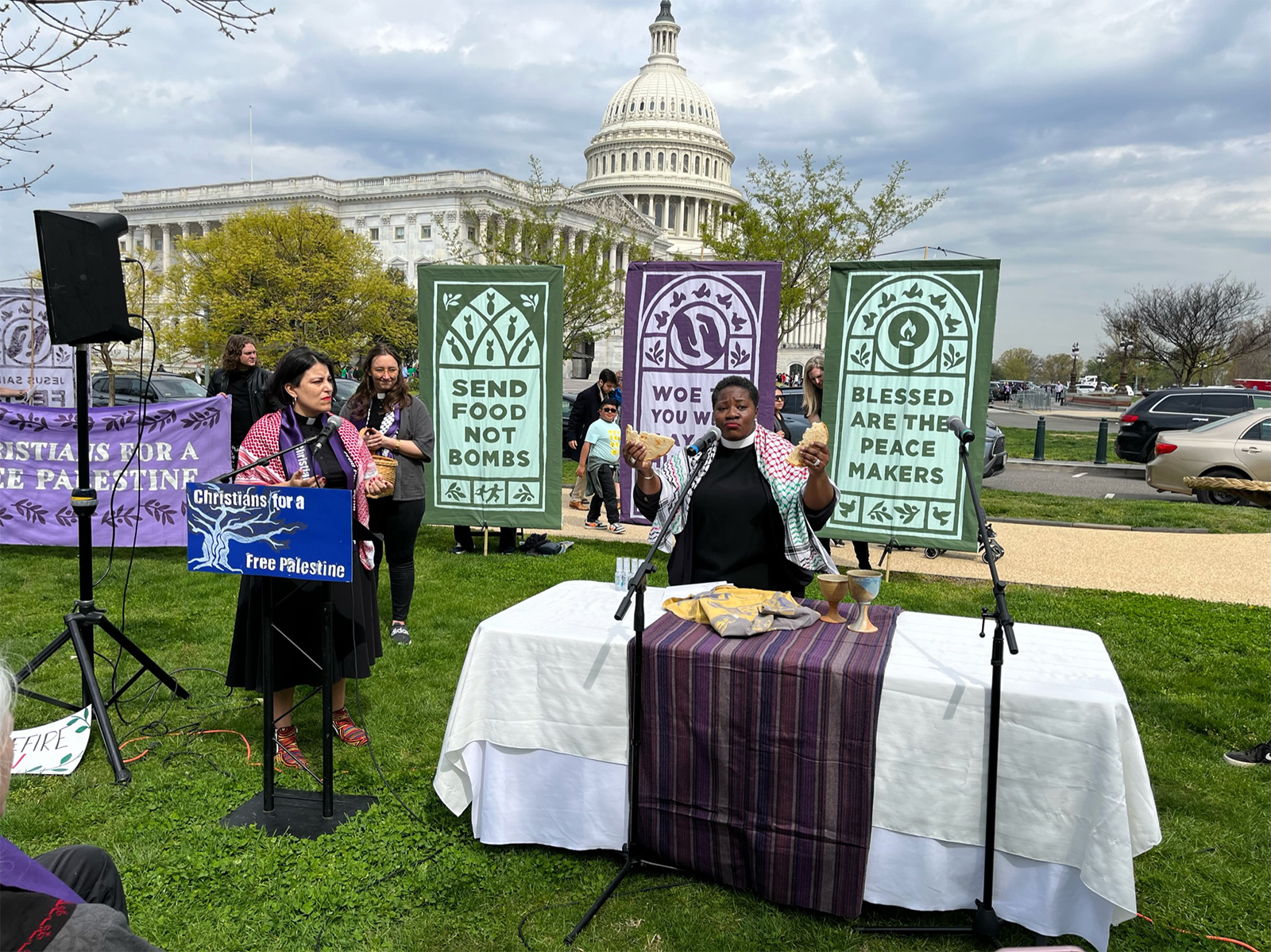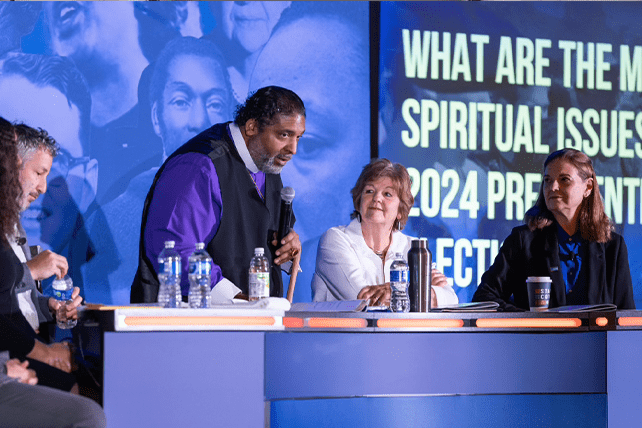David Ashcraft on The Stetzer ChurchLeaders Podcast.mp3: this mp3 audio file was automatically transcribed by Sonix with the best speech-to-text algorithms. This transcript may contain errors.
Ed Stetzer:
The sets are. Church Leaders Podcast is part of the Church Leaders Podcast Network, which is dedicated to resourcing church leaders in order to help them face the complexities of ministry. Today, the Church Leaders Podcast Network supports pastors and ministry leaders by challenging assumptions, by providing insights and offering practical advice and solutions and steps that will help church leaders navigate the variety of cultures and contexts that we’re serving in. Learn more at Church leaders.com/podcast network.
Voice Over:
Welcome to the Stetzer Church Leaders Podcast, conversations with today’s top ministry leaders to help you lead better every day. And now, here are your hosts, Ed Stetzer and Daniel Yang.
Daniel Yang:
Welcome to the Stetzer Church Leaders Podcast, where we’re helping Christian leaders navigate and lead through the cultural issues of our day. My name is Daniel Yang, national director of Churches of Welcome at World Relief. And today we’re talking to David Ashcraft. David is the president and CEO of the Global Leadership Network, serving pastors and equipping churches to inspire more leaders around the world. He’s also the pastor emeritus of Lcbc Church in Lancaster County, Pennsylvania, and founder and president of The Advantage, a leadership collaborative for pastors. Now, let’s go to Ed Stetzer, editor in chief of Outreach Magazine and the dean of the Talbot School of Theology.
Ed Stetzer:
Well, we’ve been excited to have David on, and one of the reasons we decided to have on is just in the introduction that we just heard. Daniel Yang, do I think the word leader or leadership was used like 6 or 7 times? I mean, it’s what the advantage is, what the what Glenn is, all these sort of stuff leadership, leadership, leadership. Now again, this is the Stetzer Church Leaders podcast. So our audience here is pastors and church leaders. But when we have somebody who and we talk about all different issues here, but we have someone who’s really their lane is leadership. It lets us lean in on some things. And a lot of the conversations I’ve been having recently have been around how leadership has changed and how it has stayed the same. And I want to talk about both of those things today, because I think we’d all agree that probably the way we led 20 years ago is has some commonalities and also has some pretty stark differences with the way we lead today. But let’s start with a little biography, David. And if you wouldn’t mind you, before you came to the Glenn, you were the pastor of Lcbc. I’ve heard about your name for a long time, having formerly pastored in Pennsylvania and more. What is tell us a little bit of the biography. And then what did you learn about being a leader through your time at Lcbc? Yeah, I appreciate.
David Ashcraft:
The opportunity to talk with you today. I have been a pastor at Lcbc for 32 years, and I pastored in the Dallas, Texas area for about ten years. Never thought I was going to be a pastor. My dad was a pastor for many years and loved what he was doing, but never thought that would be me. And people would always tell me I was going to grow up and be a pastor. And so I was determined very much not to be. One thought I was going to be a lawyer. God turned my heart. When it was time to apply to apply to law school. I ended up going to Dallas Theological Seminary, worked actually in my dad’s church in Dallas for about ten years before coming to Pennsylvania in 1991, and stepped into a small church of about 150 people. First 5 or 6 years were incredibly tumultuous with three different elders, and we only had five on our elder board at that time, but three elders over a three year period, all resigning, unhappy with me. And once we got through that period of just trying to figure out who we were, what we were doing as a church, then things began to take off for us. And so I stepped out of the role as senior pastor about a year and a half ago. But when I stepped out, we had grown to over 20,000 people each weekend, about 21 campuses now. And so God just did some amazing things and great opportunities and enjoyed very much. It was just thankful that God allowed me to be on that journey.
Ed Stetzer:
Yeah, it’s kind of interesting because I, you know, I knew a bit of your story just because of my Pennsylvania connections. I came to Pennsylvania a few years after you and then kind of tracked as you became the, you know, the largest church in the state, things of that sort. But it is interesting to me that you’ve stepped into this role of the Global Leadership Network, but you weren’t on like, a lot of pastors and church leaders whose churches, you know, blow up in attendance like yours. You didn’t jump into the circuit. You weren’t we weren’t running each other in green rooms. And I’m not that I’m not saying that’s wrong with that since I was in some of those rooms, but but you clearly were focused on well, tell us what you were focused on and why you chose not to kind of engage in some of those broader conversations, because now you are. But tell us about the journey.
David Ashcraft:
Well, and to your point, I’ll just say real quick, there isn’t necessarily a right way or the wrong way to do this. But what I watched happen is as churches start growing and we never, ever thought that Lcbc was going to be the size that it is today in our area in Pennsylvania, there were some churches that were around 3000, and so we kind of thought that would be where we would max out. I’d been in a church. My dad’s church was in the Dallas area, about 2500, and so I was real comfortable with that and assumed that would be where we go. And what I watched happen with other pastors around the country is once you start getting in that three, four, 5000 range, then you have lots and lots of opportunities to start speaking, and people want to know why the church is growing. What you’re doing and what I watched happen over and over is pastors would hit that three, four, 5000 range. They would jump on the speaking circuit, and all of a sudden their church would stop growing and they weren’t sure why. Or maybe they weren’t even interested as to why they were out doing their thing. But I think the reason why is they’ve taken their eyes off of leading their church and got involved in other things. And so I just determined early on to stay very focused on the church. And it wasn’t about me and getting my name out there, but it really was about the church and helping the church grow. And so that focus stayed very much on lcbc and very determined not to let it distract some other way. And then also, I was just also very determined that it wasn’t. Like I said already, it wasn’t about me and wanted to develop and try to grow a church so that it would grow on long, long after me. I don’t think a church has to decline when the senior pastor leaves. And so it was very determined to say, this isn’t about me, it’s about lcbc. And how do we help it grow way beyond myself?
Ed Stetzer:
Right now you have, of course, you’ve made a major transition into an organization that has really in some ways shaped, uh, evangelical megachurches also shaped the way leaders think, you know, the Global Leadership Network and more. I have I mentioned megachurches on purpose. I want to move away from the megachurch theme because that’s, you know, most of our audience is not that, but have a chapter coming out in a in a book where I trace the influence of the Global Leadership Network and a few other organizations on kind of the distribution of ideas about leadership that ended up shaping the way large churches think. It’s a scholarly book. It’s very nerdish. But but so that’s been on my brain and on my mind. Um, so you’re stepping into an organization that sort of shaped so much of the conversation, but not a secret. Been through tumult and turbulence and and reshaping and now trying to, you know, trying trying to cast some new vision, some similar vision. Which leads me to my question. So when you look at leadership, I mean, the world’s changed in a lot of ways in the last five years. You know, I mean, we see just huge skepticism towards institutions and leaders. I, you know, the rise and Fall of Mars Hill podcast becomes the the number four most listened to podcast in the world, not the Christian world, the whole world. Um, and you see, all these things are and people now are very skeptical. But I don’t just want to start there. Go there. I want to ask you, how has leadership changed in the last few years? Because I imagine that’s going to be reflected some in the message of the Global Leadership Network.
David Ashcraft:
Yeah, very much so. So I think what’s happening and so not only am I involved with the GLn or Global Leadership Network, but also as I stepped out of Lcbc, I began an organization in Pennsylvania for Pennsylvania pastors specifically, we call The Advantage. And where that comes from in acts chapter 18, there’s a description of a man named Apollos. And 4 or 5 years ago, I was reading through that passage and doing what I think a lot of us do. I’m comparing myself to Apollos and thinking, how do I measure up compared to him? And as I read that passage, I’m thinking I am nothing like Apollos. It says he’s this eloquent speaker, he’s this great defender of the faith and and all these different things. And I’m thinking, man, I am nothing like Apollos. But then there’s one little phrase that caught my eye that I’ve seen before but never really hit me, but it just says he was a great advantage or benefit to every believer that he came in contact with. And as I read that, I thought, okay, I can do that. And specifically, I’d love to do that with pastors. And so it became my kind of life goal. And I said to God, if I could spend the rest of the rest of my life just being an advantage or a benefit to pastors, I would love to do that. And so we started this organization called The Advantage in Pennsylvania. Initially, we said, let’s reach out to every pastor in Pennsylvania. And then we found out there are 21,000 churches in Pennsylvania. And so we said, that’s probably not going to work. And so then we said, let’s reach out to the largest churches.
David Ashcraft:
And so we reached out to the 80 largest churches in Pennsylvania. Uh, 76 of them joined us for a one day kind of gathering, and 65 of them said they would join cohorts with us. The whole goal is to say, let’s just impact and change the state of Pennsylvania. And so in turn, for them joining the advantage, then they in turn are now mentoring ten pastors themselves. So that’s 65. We hope this year goes to 650. And so that’s what we’re doing. But as we work with pastors and what we’re finding is that, um, probably more self-doubt than ever before, I think before Covid, pastors felt like they knew what they were doing. They knew how to move forward. They knew how to grow their church. I think Covid caused a lot of self-doubt with all the divisiveness that was going on, uh, the churches were not growing. They were declining. Uh, people weren’t rushing back to the church like they thought, uh, like pastors thought they would. It’s, you know, it’s funny, even I was with a bunch of pastors over the last several days and listening to them talk about their post-Covid experience. And as they opened their doors again, the assumption was that we’ve got to manage the group because the crowd is going to be so big, and it was anything but that. And so I think it just left a lot of self-doubt in pastors minds. And people don’t listen to pastors the way they used to. We’re not we’re not valued as maybe we once were. So a lot of changes from that standpoint. Um.
Daniel Yang:
Yeah. I mean, sort of the flip side of that, David, is, from your perspective, leading Glenn and then also maybe even what you’re seeing out of the advantage, what are some of the things that are consistent and constant still in church leadership?
David Ashcraft:
You know, it’s funny, again, we just finished three cohorts with our advantaged pastors. And each cohort. The questions are basically the same. It comes down to just how do I even organize my church structurally? And then it comes down to people issues. How do I lead my staff? How do I deal with people that are not happy with me, both on staff or in the church? And that hasn’t changed. And even before we started the cohorts, I said to the team that works with me, let’s just watch. And. See if the questions are any different than they were ten years ago. They’re really not. It’s still dealing with people problems and I shouldn’t call it problems. It’s just dealing with people and trying to lead people. And I think that’s gotten harder. But it’s still the same type of issues.
Daniel Yang:
What do you see in generationally? You know, there’s sort of kind of a stereotypical, you know, Boomers and Xers and millennials now. But do you do you feel like some of those stereotypes are true to to the generational leadership?
David Ashcraft:
We talked about that kind of thing this week as well. I think that boomers and older generations have not come back to church the way everybody thought they would. And I think that what we’re seeing is it’s not, you know, before Covid, everybody would say 1.7 times a month was the average attendance of pattern of the average church goer. And what we’re seeing now is more like one out of six weeks, and they still very much feel like they’re connected to church, but they’re very content watching online. And so I think even the way we measure church attendance probably has to change, because it’s not so much who shows up in the building, but who shows up regularly, whether it’s online or in the building, and even with what regularity they come. So that’s from the older side. I think that’s been a surprise on the younger side, even talking about staff on the younger side, we spent a lot of time in the last several days talking about how do you help younger staff realize they have more capacity than they think they do, but I don’t think that’s just this generation of younger people. I think that’s been the same for every generation of 20 somethings. And and we talked very specifically, even about situations we had at Lcbc where we would have younger staff that would show up and they would be working hard on a project and spending 40 to 45 hours a week on a project that you kind of evaluate and say, I think you could probably get that done in 5 or 6 hours a week. You just have to learn efficiencies and can’t strive for perfection and all those kind of things. But that’s not a new thing that’s been happening for a long time.
Ed Stetzer:
So, so, so you said you had these conversations about this. So bring us in in those conversations I’m interested to see because because a big part of what we do, you know, I mean, typical church in America, the median church in America is actually under 100 attendance. But, you know, probably most people attend churches that are, you know, 2 or 300 or larger, and that might be single staff with some part time or multiple staff and often younger staff. So this is a pretty common question. So in this conversation you had, what were some of the solutions you came up to up with? Yeah.
David Ashcraft:
So really it’s it’s pretty basic and simple things as far as saying, you know, these 20 somethings haven’t worked before. And again, this isn’t just this generation. Anytime 20 somethings probably haven’t worked. They definitely haven’t worked a full time job before. And so it’s just helping them. We talked about one one church kind of has a pie chart and they would say, okay, this percentage of the pie of a 45 hour a week, you ought to be spending on this project and just really getting real detailed and saying, here’s how to break out the 45 hours in order to be effective. And and I think we all know if I’ve got 40 hours to prepare a sermon, I’ll spend 40 hours preparing the sermon. If I’ve got eight hours to prepare the sermon, I’ll get it done in eight hours. And it may not be. I don’t know that it’s any worse, because 40 hours we may spend it but not spend it well. And so it’s just helping people with some parameters and some guidelines and, and sometimes pushing them way out of their comfort zone and helping them realize they can still do well. But you know what? I see Ed and Daniel all the time is oftentimes especially well, not oftentimes pastors will bring in a young person to work on their team. Don’t give them a lot of guidance or direction. And they’ll just say, here’s what I want you to do. And then they leave them alone. And six months, 12 months later, they’re very frustrated that the staff didn’t do what they were asked to do. But they were never guided. They were never mentored. They were never shown what to do. And so it’s really not that young person’s fault. It’s the it’s the leader’s fault for not guiding them and setting parameters for them.
Ed Stetzer:
Yeah, I think I mean, a lot of what you’re explaining is, is very much the kind of thing that would need to be reminded about when it comes to leadership. And and I’ve been around long enough. You’ve been around long enough to see, you know, we kind of saw the backlash from the CEO model. And, and I think let me just be transparent. I think probably the CEO model went too far and became too all encompassing and kind of moved to the side some of the other things that would be there, they’re more pastoral or maybe more relational things of that sort. But then there was, of course, a backlash to that. And, you know, even some of that was tied up in the emerging church. And then one Thursday afternoon, all the emerging church went away. And, you know, people, it’s like what happened? But there was a sense that in each of these things, there is a, a, a pushback to leadership. We saw that in emerging church. We saw, you know, in a in around global leadership network and other places, high profile failures, and then people sort of move away from leadership. And and because it gets all caught up in that, I mean, there are there are power dynamics and more. And, you know, whole books have been helpful. Books have been written on this.
Ed Stetzer:
I require them for some of my students to, to read. So, so the question and I wonder how Glenn’s going to answer this is how do we teach? About leadership in again, a season of suspicion when there’s not not just towards leadership, but towards pastors in general, towards, you know, I mean faith traditions of angelicals a very high negative ratings when it comes to polling. So how are we going to be teaching people about leadership in this time? Uh, this in this kind of and again, I want to be careful about saying backlash, because I think there are real issues that needed to be addressed. But how do we not throw out the baby with the proverbial bathwater and actually help people lead? Well, because as someone who trains pastors and church leaders, you know, I’ve got, you know, the fifth largest multi-denominational seminary in the world, I got 1500 people going to seminary to be pastors and church leaders. Well, I got to prepare them because if they don’t go out with any leadership, it’s it’s consistently a disaster. Now, if they go out without character, it’s a disaster. If they go out, you know, all the other things are there. But in a season we’re in now. How and you’ve taken the step to the Glen. What’s the forward path to helping church leaders think about leadership?
David Ashcraft:
So I don’t think you can throw out the baby with the bathwater. First of all, I think we’ve got to be careful because people still need to be taught how to be leaders. And oftentimes churches don’t grow or churches don’t function to the full extent that they could just because of a lack of leadership skills. And a lot of pastors step into the pastorate one, because they love Jesus, they love the Bible, they love caring for people and all. That’s great. But if they had the leadership skills or knew more leadership skills, they may be able to do more than they think. And so I think the leadership side is real important. Flip side of that, I think, and you said the word character, I think character is huge, or maybe even just learning how to emotion manage our emotions. And so let me give you an example from myself. When I stepped out of Lcbc, I was told that it’s going to be hard. It’s going to be challenging for me. It was an eight year, ten year process. I’d had opportunity to sit with Jim Collins in a small group about ten years ago, and he made the comment to me, to the group of about 10 or 15 of us. He was talking about his levels of leadership. His highest level is a level level five. And so once again, I’m thinking, oh, can I be a level five leader? His challenge was you’ll never be a level five leader until you’ve actually left the organization you’re leading. And after you’ve left, that organization is better with you gone than when you were there. And so that started me on a journey of saying, what do I need to do to make sure Lcbc is better when I’m gone? And so that became a ten year process.
David Ashcraft:
I stepped away from Lcbc excited about and still very, very excited about my successor. His name is Jason. I’m excited about the church. I’m still a part of the church. What I didn’t anticipate, Ed, were the emotions that were going to hit me. And most of them are wrong and most of them are sinful. And I’ve spent more time confessing those emotions to God over the last 18 months than maybe I’ve ever spent confessing to God where very positive things happen. But then I start pridefully thinking, well, wait a minute, I’m not being recognized the way I think I should be recognized, or I’m not giving credit for me being the one that established many of those things. And if you’re not careful, and if you’re not aware of those emotions and that they are sinful and they are wrong, I could blow up things very easily. And so I’m constantly having to just be very careful. And so I think it’s character, I think it’s leadership principles. But I think it’s I think it’s being aware of the emotions we’re experiencing and how to manage those properly so that we don’t mess things up. And even as we talked with pastors this past week, as I said, many of the issues they’re facing are the emotions that they feel when they get out of sorts with a staff member, when they get out of sorts with a congregant congregant. And so it’s just it’s really basic to most to the most point. But, um, yeah.
Ed Stetzer:
Basically it’s but it’s so overlooked. I can’t tell you how many times I sat down with a pastor and church leader, and I reminded him or her that, you know, you lose your temper. It kind of sets back everything for a year. And, and or, you know, I’ve if there’s phrases that I use in a meeting, the, the person who loses their temper first is the person who loses in the argument or the debate. You know, when it comes to these kinds of things, 100 things and and yet it’s it’s very difficult because simultaneously, I mean, just being transparent. I just had a hard conversation yesterday, and I leaned in with people in ways that probably they’re not accustomed in an academic environment. And I because I think leaders lean into pain, they lead into they lean into the painful decisions, and we need to make some painful decisions. But all are those all of those things are things I learned and I learned. I learned some of them over the years of Global Leadership Network. So all those things are things that I learned. So I want to come back to because this is right now, you stepped in the Global Leadership Network. So is it pretty much the same now what you’re going to be telling us that was you were telling us ten years ago, or I know it’s of course it’s going to be in some ways. But also, again, back to the question earlier, what’s GLn going to be different? You’ve learned some lessons, right, Glenn? Uh, you know, all the the problem, the scandal, the the the rethinking, what lessons have. Have you learned that you’re going to help us learn at the Global Leadership Network?
David Ashcraft:
Well, I would say for the Global Leadership Network, one of the lessons we’ve learned is we probably drifted a little way, ways away from our original calling. Our original calling was to help pastors be better leaders so that their churches could prevail, so that ultimately more people could be introduced to Jesus Christ. That’s always been the focus. That was the original focus of the GLn. We probably drifted away from that as as we experienced success not only in the church but outside of the church, and so began to drift more towards the business person, which we still are very focused on the business person. But our ultimate goal is the pastor and the leaders within his church and then leaders outside of the church. But it’s all for the purpose of introducing people to Jesus. So we’re going to constantly go back to that which I think we’ve drifted from it. I think there’s still going to be very basic leadership principles, or maybe even not so basic. We’ve got Arthur Brooks this year who is Harvard professor. We have Amy Edmondson, who is a professor. So we’ve got people that are thinking very do you know, I’m going.
Ed Stetzer:
To interrupt you because Arthur Brooks is why I’m here. Is that right? So so yeah. So we we had the we had him on the podcast. He’s my friend. People could listen to the prior podcast. I share the story. I changed jobs because of some Arthur. So that man will mess you up. Okay. So anyway moving moving in a very in a very good way. Yeah. So keep going.
David Ashcraft:
Let’s say we’re still going to have some cutting edge thinking in leadership. But it does come back to basics. One of my concerns with the summit is early days. There would be some very basic talks on how to manage your schedule as a leader and how to manage your heart as a leader. And I think the issue is, as you’ve done that several years and you think, oh, everybody’s got that, I’ve got that, I need to move on and hit more, um, topics that are further out. And yet we’ve got to come back to our 20 somethings and say, how do we help them come back to some basic things? So we need to do that. But I think we also have to talk about the heart and again, emotions. And you know, you talked about having hard conversations yesterday. Well, most pastors probably. Um, so again I’m thinking, um, I don’t have evidence of this factual. We as a church, we talk oftentimes is this factual or futsal. And so this is a futsal statement not a factual statement. I receive those. Yeah. And so feel truly it just feels like a lot of pastors, they don’t like confrontation. They stay away from the difficult conversations.
David Ashcraft:
And then emotionally they build up all kinds of things inside of themselves because they know they should have a conversation. They don’t. And so just what you described of having yesterday, you could have chosen not to do that, and then you’d have been frustrated with those people and it could have built and built, and then you finally do blow up and mess everything up. And so it’s just helping pastors to see how do you deal with those, how do you have those conversations. And so some of it changes, some of it doesn’t. And the facts around what we’re experiencing it is different after Covid, but it’s still the same interpersonal issues that we’re struggling with with people. So it’s just helping people move ahead. And what I’m finding people just need pastors now. What they need more than anything is just validation that the things that they’re considering, the things they’re trying to do, um, the feelings that they’re having, it’s okay to feel insecure right now, but you don’t have to get bogged down in that. And so just validating feelings and saying, yep, we understand that, but we don’t have to be captured by that.
Ed Stetzer:
That’s so good.
Daniel Yang:
David. I mean, I think it might be insightful to help some of our listeners to think through even what what you were processing when you went through the transition between leading Lcbc and then moving over to to Glenn. And it’s I’m very hopeful to hear that you’re still at the church, because, I mean, that’s a, you know, to have your tenure and still be there is an amazing feat. But talking about that internal processing, I mean, what what caused the transition and how did you process that transition? Because I think that’s a that’s a leadership skill.
David Ashcraft:
So, Daniel, what I have experienced is that most pastors don’t choose to step away when it’s best for the church. They choose to step away when it’s best for them personally. And oftentimes it’s around finances. And pastors don’t always get paid well, and so they stay until it’s right for them financially. Or I’ll hear guys say, I’m going to stay until my kids graduate from high school, or they graduate from college. It’s like, that’s great, but is that really what God is calling you to do? And is it really the best for the church? And so part of it is saying, okay, let’s make a decision on what’s best for the church, not what’s best for me. That entailed then working with my board and saying, okay, I really financially need to go to this time. And if you can help me know that financially, I’ll be taken care of until this period of my life, then I can make a decision not on what’s right for me to step away financially, but when it’s right for the church. And so it was having conversations like that. It was identifying my successor. And when I first identified who I thought would be my successor and presented him to our succession team, they said, oh, there’s no way he’s not ready. It’s a guy that had been on our staff for 12 years. And so we said, well, then what are the issues that need to be brought up to a certain level so that he could be ready? And because we were starting 8 to 10 years out, what I say now to guys, if you’re thinking about succession time is either your best friend or it’s your worst enemy.
David Ashcraft:
And if you plan far enough in advance, you may have your successor in your church, but you just have to develop him. And so we looked at the 4 or 5 things that needed to be strengthened, like communication skills or theological training or business acumen. And and we just said, let’s then let’s go to work on those, identify those, go to work on them. And so six years later, I came back with Jason’s name and they said, yes, we think he’s finally ready. Had I waited until two years before I was ready to step out, that never would have happened. And so they were excited about where Jason was. Part of it was also just making the church was in the financial situation that it needed to it. It was restructuring staff. It was all those things, but it was all to make sure the church was better when I’m gone. And what Jim Collins said is, you know, what typically happens is a leader steps out, things fall apart and everybody goes, oh, he must have been she must have been a great leader. And he said, if that happens, you’re a terrible leader. You didn’t plan well. And internally, emotionally I wanted to fall apart. I want everybody. And I joked with the church and I said, you know what I want? I want weeping of gnashing of teeth when I say I’m going to step away. And I want to know that you struggle because that’s the selfish thing inside of me. And that’s where, again, you’ve got to manage your emotions and just call them out. And so when I stepped away, the kind of emotions that I felt, um, driving to church the last 3 or 4 weeks before I stepped out of my role, I told the congregation, I feel like I’m driving to my own funeral.
David Ashcraft:
And, I mean, they were deep emotions because we’d been there 32 years and it’s never was ours. But you felt like it was yours. Your identity was wrapped up in the church after that much time. Um, the last Sunday that I spoke, I left the church and actually came to my new office, and I just cried for several hours. It was just incredibly painful. And we stayed away from the church for 12 months. That was planned. Initially, I thought that was for the staff and for the church to kind of break away from me. What I realized 3 or 4 months in is it was for me. It wasn’t for them. Maybe it was for them, but I needed to be away so that I wouldn’t dip into things that I shouldn’t. And I needed my emotions to kind of get under control and things like that. So it’s those kind of things, and it is a lot of it’s pride where, you know, they since I have stepped away, we’ve opened up three new locations and that’s incredible. Um, I plan those locations. I raise the money for those locations. I’ve gotten no credit publicly for those locations. And it doesn’t matter. I shouldn’t get it. But internally I’m going, oh, wait a minute, those were my things. So it’s those kind of things that just catch you that are they’re sinful. They’re wrong. I confess those to God all the time, but those are the things that hit you. It’s just normal, I think.
Ed Stetzer:
And you just confess them in front of like, thousands and thousands of people on our podcast. So we appreciate the sin, you know, confessions one another, pray for one another. We’ll do it right now.
David Ashcraft:
And I told the church that. And I’ve told Jason that.
Ed Stetzer:
No, I mean, I’m 100% I would assume this is not the first time you’ve shared that. That’s not. But but I but I do think it’s really interesting to see because these transition issues. Now again, some of the things that you said are unique to large churches, but most of what you said is not unique to a large church. And, and, and we’ve seen this over and over again. So to see your transition, I hope too, that you’ll have and you have already had some, but have an opportunity to share some of that in Glen world as well. But I want to come back to because we got just a few minutes left, I want to come back to just some questions with you, advice you would give because you’re I mean, this is what you’re doing through your the network you’ve created and through Glenn. Um, because our audience is pastors and church leaders. And what would you say the most often miss when it comes to church leadership? Now, I should say to folks that he doesn’t have these questions ahead of time. So but what are what are some of the things that you think that most pastors and church leaders kind of consistently miss, that if they got this, it would just help them excel in the calling that God has on their lives.
David Ashcraft:
Oh, man. You know, um, I think one just understanding the church isn’t about you as the leader. It really is about God’s, the bride of Christ. And it’s it’s God’s. Weather. And I know there’s debates as an organization or an organism. What do we want to call it? That’s God’s thing. It’s not mine. And I think we get wrapped up and this is my church and and we get bent out of shape when somebody doesn’t like my church or the way I preach, the way I talk, and it’s not about us. And so I think we put ourselves too much in the limelight of what it’s about. And I think if we can get out of the way and let God do his thing, I mean, one of our mottos at Lcbc since I came was, let’s not do anything stupid to mess up what God is doing. And stupid can be a lot of things. Yeah, it can be emotional issues with other staff members. It can be a moral failure. But God, I think if we step into the situation and if we really want to advance his cause and introduce people to Jesus and see people fully follow him, I think he’s going to honor that and bless it. But I think we get in the way with our pride, our emotions, and, you know, and it’s like, well, why would he want to allow our church to grow if I don’t have my pride under control, why would he want to have it grow if my emotions aren’t under control? So I’m going to blow it up relationally. And so I think if we just understood this isn’t my church, it’s God’s church. And let’s stay out of the way.
David Ashcraft:
Let God grow. And it doesn’t mean we’re not important as pastors. I think we’re incredibly important as pastors. And our leadership lid can stop the growth of the church. Our character flaws can stop the growth of the church. But so I need to be the best version of me that I can be. But part of that is learning to be the best version of me so I can stay out of the way and let God take off with it. Um, the other thing I’d say, editor real quick is for me, growing the church wasn’t about me just getting better. It was really about me bringing the best people around me that I could find, and constantly just guiding them and making them the best they could be. And so we constantly I would whenever I’d hire somebody, I’d say, I’m going to bring you in, Daniel, to work on the staff, and you’re going to be in charge of kid ministry. And we would look at a church doing kid ministry well and would kind of guide you initially, but I’d say, I want you to take this be better than I could ever dream of being. I want you to become an expert in this area. So people from around the country are going to come and talk to Daniel and say, Daniel, how can we do? How do you do kid ministry? Well, and so it’s really about building other people up around us. And if we think we’ve got to be the best or the most informed or the wisest on the staff, then we’re in trouble, because then we’re limited to who we are and then below. And so it’s bringing people around you that are successful.
Daniel Yang:
Yeah. Wow. That’s really good. Um, in light of that, David, um, we know, like, leadership isn’t linear and you can’t start from zero, one, two, three, but thinking about the future, thinking about some of the challenges that you’re seeing now that will probably continue to persist into the future. If we could restart or if we could, let’s say you had a batch of just fresh, you know, blank slate people. What do you think is the skill that they should first develop in church leadership? You know, there’s a lot of competencies and a lot of, uh, areas of knowledge. But do you really think if we were to invest on this first skill, what would that be?
David Ashcraft:
Well, this is going to sound redundant, but I think it’s relationships. I think that’s where we trip up most often. And so just helping people learn how to do things relationally, I do think that there is a big gap in our self-confidence. And so just helping people get comfortable with who they are, and it’s okay that I have flaws, and it’s okay that I’m not great at every area. And I think old school and, um, you know, pastors used to be considered the wisest person in town. And I think, you know, we think we’re going to be great marriage counselors and we’re going to be great financial counselors. And we don’t know that. And we, you know, we know our own experiences, but we haven’t been trained in all those things. And so just admit that and then bring other people that are strong around you. So I think it’s that I also think, you know, for years I’ve listened to this talk about a leadership pipeline, and we just got to build a leadership pipeline in our church. And to me, that’s I joke about it being the mythical leadership pipeline, because I don’t think a pipeline like that exists in most organizations. When you get big enough that you can hire seconds and thirds and develop them, then I think it’s possible. But for most of us, we can’t do that. And so I talk more about establishing a leadership culture and bringing leaderships and leaders into the culture, continuing to raise the level of their skills and abilities, which I think that’s what the Global Leadership Summit is so helpful for. It just raises everybody’s bar in the leadership realm. And so then when you have needs, you’ve got a wealth of people that you could turn to that are good leaders, and they’re not in this pipeline and they’re the next man up like football talks about. Um, but they are there. You’ve got a pool of people to draw from, not just 1 in 1 specific area.
Daniel Yang:
We’ve been talking to David Ashcraft, president and CEO of the Global Leadership Network. Learn more at Global Leadership. Org and thanks again for listening to this Church Leaders podcast. You can find more interviews, as well as other great content from ministry leaders at Church Leaders Compass and through our new podcast network, go to Church Leaders Compass Network. And again, if you found our conversation today helpful, we’d love for you to take a few moments. Leave us a review that will help other ministry leaders find us and benefit from our content. Thanks for listening with. You in the next episode.
Voice Over:
You’ve been listening to the Stetzer Church Leaders podcast for more great interviews as well as articles, videos, and free resources, visit our website at Church leaders.com. Thanks for listening.
Sonix has many features that you’d love including secure transcription and file storage, automated subtitles, automated translation, automatic transcription software, and easily transcribe your Zoom meetings. Try Sonix for free today.





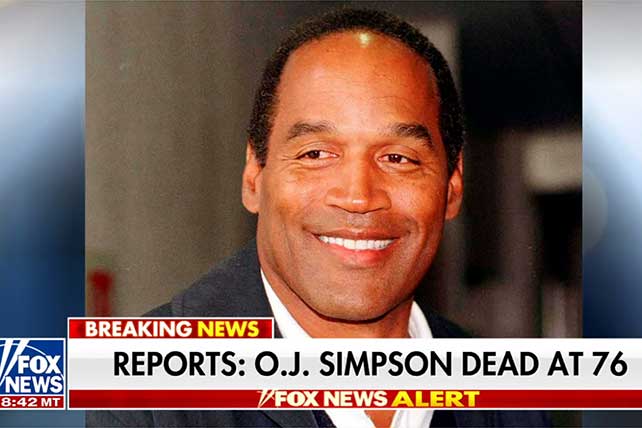

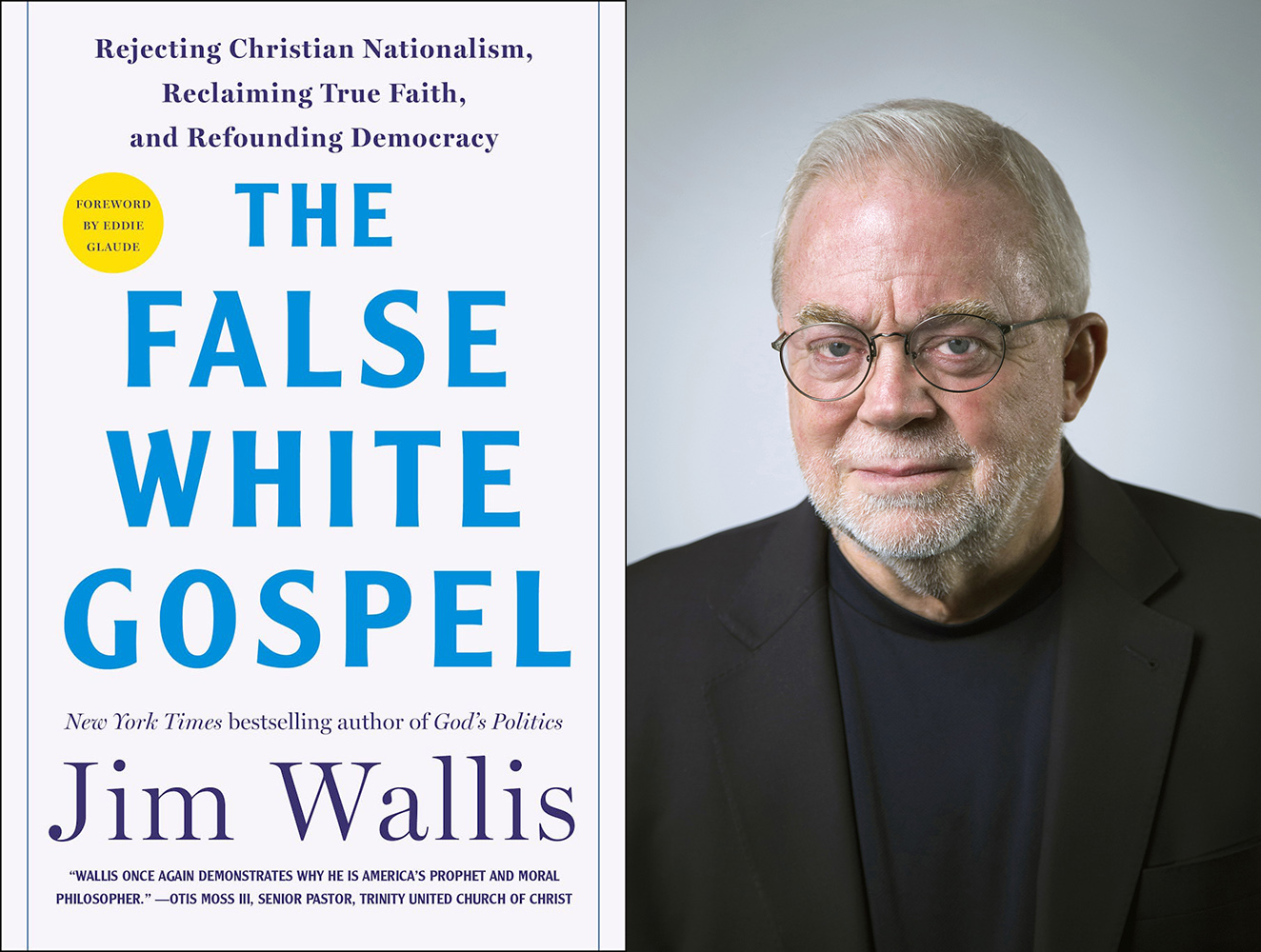
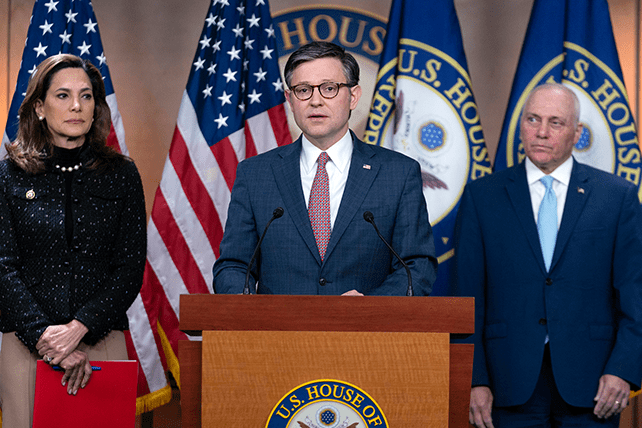
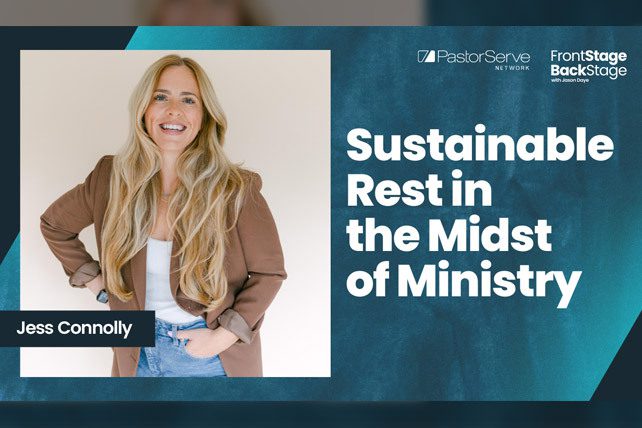
 As pastors and ministry leaders, we all know that rest is vital. Yet, how can we experience true rest when it seems unrealistic in our busy ministry lives? In this week’s conversation on FrontStage BackStage, host Jason Daye is joined by Jess Connolly. Jess and her husband Nick planted Bright City Church in Charleston, South Carolina. Jess has written a number of books, including her latest titled, “Tired of Being Tired.” Together, Jess and Jason look at some of the struggles that we have as ministry leaders when it comes to experiencing rest and refreshment. Jess spends some time focusing on the different types of exhaustion that we experience in ministry and provides some helpful insights on how we can create sustainable rest in our ministry lives.
As pastors and ministry leaders, we all know that rest is vital. Yet, how can we experience true rest when it seems unrealistic in our busy ministry lives? In this week’s conversation on FrontStage BackStage, host Jason Daye is joined by Jess Connolly. Jess and her husband Nick planted Bright City Church in Charleston, South Carolina. Jess has written a number of books, including her latest titled, “Tired of Being Tired.” Together, Jess and Jason look at some of the struggles that we have as ministry leaders when it comes to experiencing rest and refreshment. Jess spends some time focusing on the different types of exhaustion that we experience in ministry and provides some helpful insights on how we can create sustainable rest in our ministry lives.


